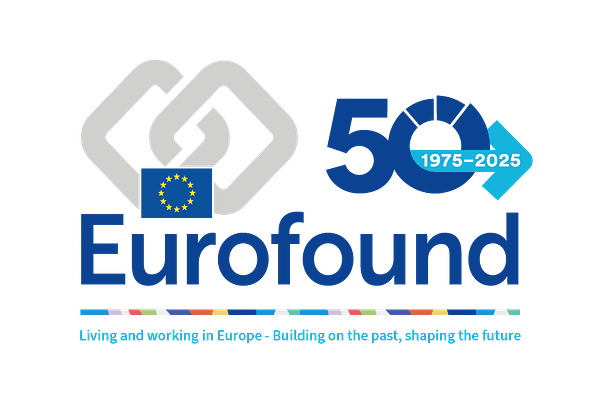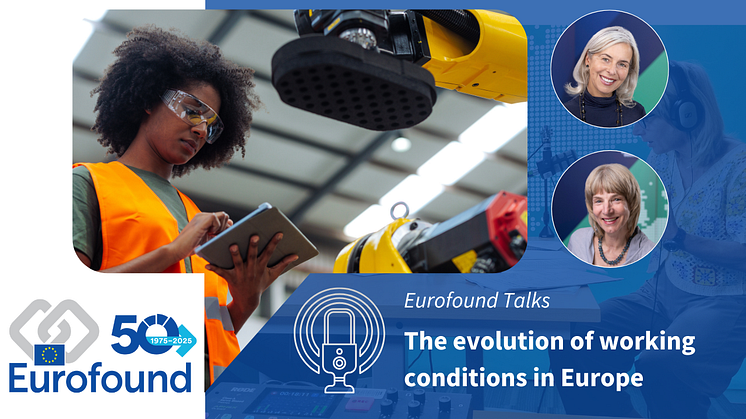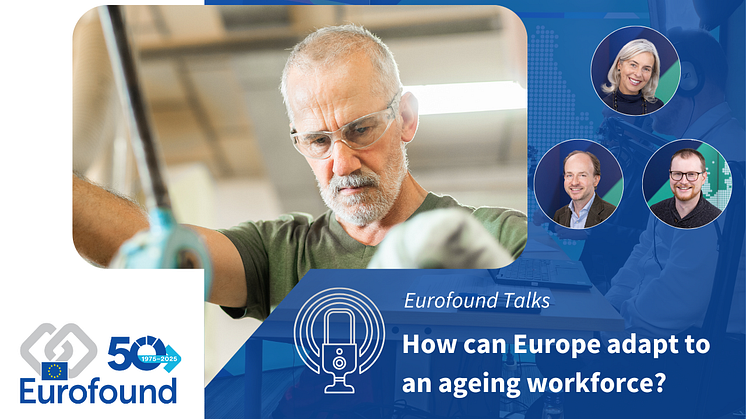
Press release -
Europe’s workers value safety, trust, and well-being but diverging attitudes evident on technological change
Europe’s workers value safety, trust, and well-being above pay, according to the first findings of the flagship 2024 pan-European Working Conditions Survey. New findings reveal an overall upward trend in job quality but also expose a workforce grappling with new and persistent health challenges and divergent attitudes to the technological change reshaping workplaces across the EU.
The data indicate that only 12% of workers report using generative AI tools in their jobs, though this figure conceals stark national differences, ranging from over 20% Sweden, Norway, Switzerland and Finland to less than 5% in Bosnia and Herzegovina, Serbia, Romania, Portugal, North Macedonia, Italy and Greece.
The report finds that technology creates more tasks than it removes and fosters increased interaction among colleagues. Hybrid work has now become a permanent feature, with 9% of employees now blending office and home-based tasks, while 16% work from home on an occasional basis.
Despite the complexities of modern work, the subjective well-being of European workers continues a slow but steady upward trajectory. The average score in 2024 was 69.4 out of 100, a slight increase from 68.7in 2015.
This positive trend, however, is set against a backdrop of enduring health concerns, including an increasingly sedentary working environment where 40% of workers sit for extended periods, and increasing levels of heat exposure with high proportions of workers in agriculture (68 %), construction (52 %), industry and transport (both 33 %) reporting above average exposure to high temperatures a quarter or more of the time.
Musculoskeletal problems remain the most prevalent health issue, and a notable gender divide persists, with women more likely to report health issues such as headaches and anxiety. In transport, health, agriculture, and industry, up to a third of workers report a negative health impact from their work.
Beneath the surface of general well-being, the survey reveals a degree of ambivalence and subtle decline. Worker engagement, as measured by levels of energy and enthusiasm, has slightly declined since 2015, and the proportion of workers carrying out monotonous tasks has risen to 48%from 40% in 1995.
Worker motivation also varies significantly across the continent; while 80% of workers in Ireland feel motivated by their organisation to do good work—a sentiment shared by high proportions in Denmark (79%), the Netherlands, and Austria (both 78%) — the figures are starkly different in Czechia, Greece, and Cyprus, where fewer than 50% report feeling motivated.
Contrary to the common assumption that pay is paramount, the report finds that a safe working environment for mental and physical health and a trusting working environment are the most important aspects for the largest shares of workers. While good pay and benefits are indeed important, a clear gender and age divide emerges, men aged 16-54 prioritise good pay, whereas women in the same age group most value a safe working environment.
The report also highlights the protracted journey towards gender equality, with a truly gender-balanced workplace remaining the exception, and very little progress having been made in achieving gender balance at management level over the past 25 years.
The research draws on interviews with over 36,000 workers across 35 countries. The data is compiled and measured according to seven job quality indicators to paint a comprehensive picture of working life across Europe.
As the EU commits to its Quality Jobs Roadmap, this data provides a complex picture of a resilient yet vulnerable workforce which, while adapting to new technologies, values safety, trust, and well-being above all else.
- Download the First findings: European Working Conditions Survey 2024
More information
- Browse our digital story: A new world of work – challenges and opportunities: EWCS 2024 first findings
- Explore the data: European Working Conditions Survey 2024
- Listen to our podcast: The evolution of working conditions in Europe
Sign up for our #AskTheExpert webinar
How are working conditions in Europe changing post-pandemic? On 24 September, join Eurofound's #AskTheExpert webinar to find out. Barbara Gerstenberger, Head of Unit for Working Life, will speak with Mary McCaughey, Head of Information and Communication, about the first findings of the European Working Conditions Survey 2024. They will explore who is gaining the most and who is losing out, and whether technological change is truly benefiting workers.
Register now and get your questions answered live!






